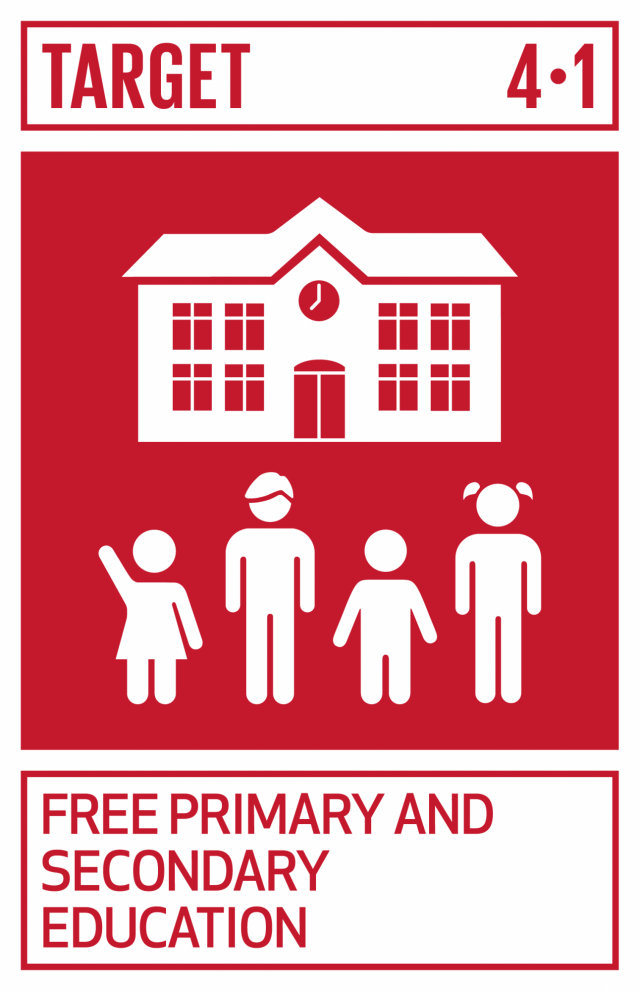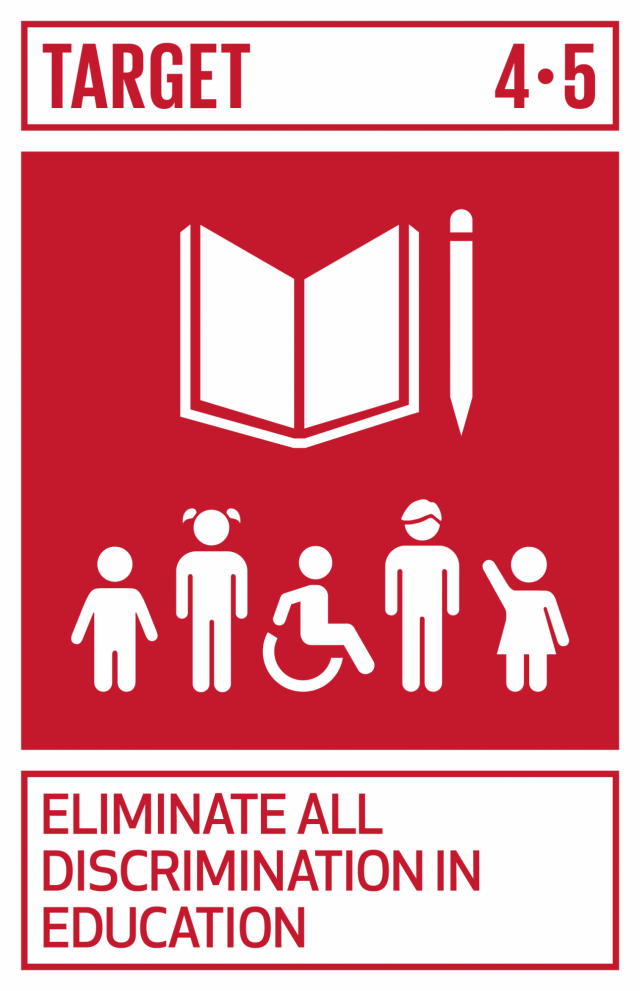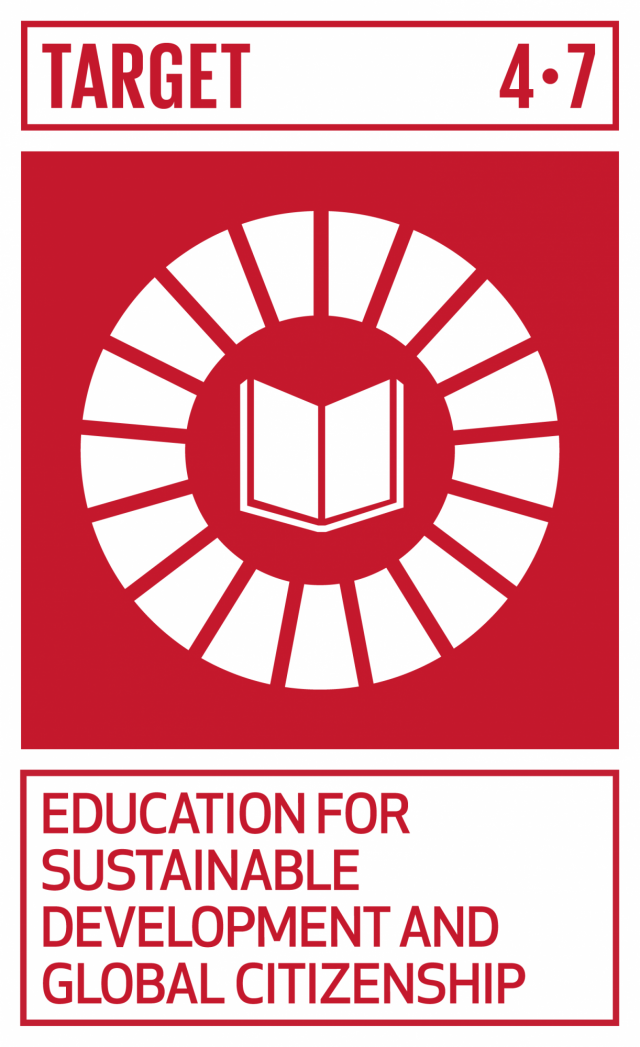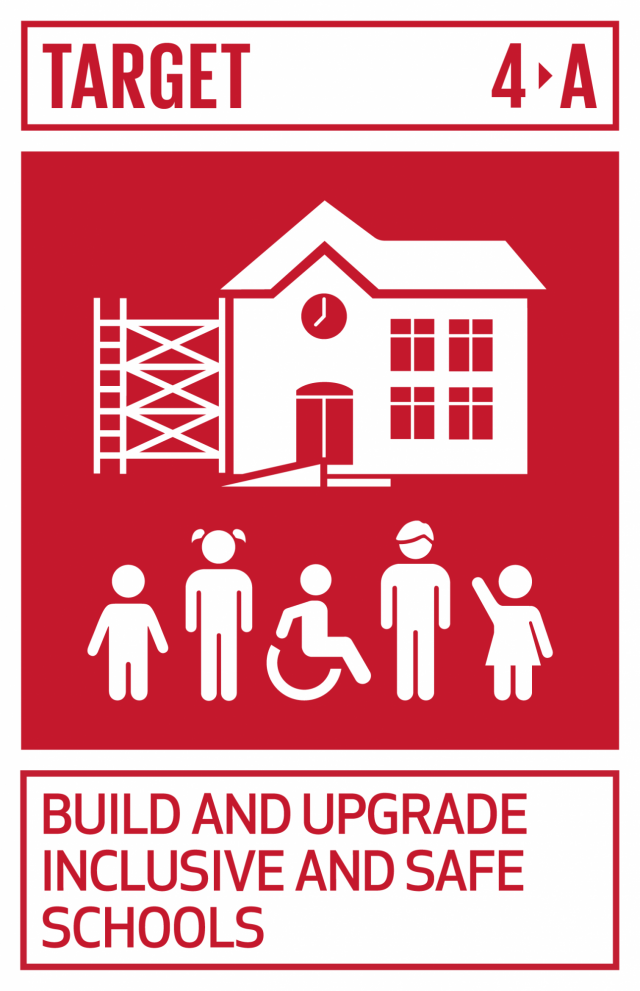SDG 4 - Quality education
"How much better to get wisdom than gold!"
(Proverbs 16, 16)
On this page...
- About this goal
- Why does his goal matter to the church
- Where do we find inspiration?
- Information, training and study resources
About this goal
Education is key to meeting the sustainable development goals set by the United Nations. Women and men, girls and boys must be able to read, write and calculate in order to care for their health, defend their rights, and work in ways that protect the natural environment. Therefore, data from the United Nations saying that more than 265 million children are not in school is cause for considerable concern1.
Often those who have the greatest difficulty accessing adequate education are people in the most vulnerable groups such as rural, poor, disabled or indigenous peoples; women; and populations caught in situations of violent conflict. This contributes in turn to perpetuating their vulnerability.
Although the United Nations reports that “in the past decade, major progress has been made towards increasing access to education at all levels and increasing enrolment rates in schools particularly for women and girls [and that] basic literacy skills have improved …” 2 more work is needed. The quality of education is negatively affected by inadequately trained teachers, the poor condition of school buildings and infrastructure, and the lack of schooling for children in rural areas.
This means that:
-
education must be made more widely available in rural areas
-
families with low incomes need access to scholarships
-
school districts require financial support for teacher training
-
school building maintenance, including improvements to sanitation and electrical services, is needed
The goal is to ensure inclusive and equitable quality education and promote life-long learning opportunities for all.
Education is a fundamental human right and is indispensable for the achievement of sustainable development. We are only able to empower girls, combat climate change, fight inequality and end extreme poverty if all stakeholders, including business, commit themselves to advancing the education goal. – SDG Compass
The United Nations has named ten targets in order to meet the goal by 2030. Four of these relate directly to existing or potential church mission work, programs and initiatives.
4.1 Ensure that all girls and boys complete free, equitable and quality primary and secondary education leading to relevant and Goal-4 effective learning outcomes
4.5 Eliminate gender disparities in education and ensure equal access to all levels of education and vocational training for the vulnerable, including persons with disabilities, indigenous peoples and children in vulnerable situations
4.7 Ensure that all learners acquire the knowledge and skills needed to promote sustainable development, including, among others, through education for sustainable development and sustainable lifestyles, human rights, gender equality, promotion of a culture of peace and non-violence, global citizenship and appreciation of cultural diversity and of culture’s contribution to sustainable development
4.A Build and upgrade education facilities that are child, disability and gender sensitive and provide safe, non-violent, inclusive and effective learning environments for all.




Why does this goal matter to the church?
Religion has always been a source of wisdom, knowledge and understanding about what it means to be human in the world and in society. Our faith tells us that human behavior is not only about individual and selfish interests, but also strives for the common good; to the ideal of safeguarding the well-being of all inhabitants of the planet.
Churches have a long-held commitment to providing quality education in the liberal arts, natural and social sciences to women and men, girls and boys. Education has been a driver for many of the social, political, and church-based reforms that have occurred throughout history, and will continue to drive our search for creative and sustainable solutions to the problems we face.
Faith actors have long played vital roles in education provision around the world. They can often reach vulnerable and remote communities. Teaching values is a mounting concern, as is assuring religious literacy. (World Faiths Development Dialogue, Georgetown University)
Churches contribute to forming people’s values through church-run schools and universities, theological training centers, popular education approaches, workshops and training on specific social matters. Believers also learn when they attend worship services and are invited to reflect on topics such as the preservation of Creation, social justice or political participation.
Churches have a proven record of providing education in day care centers for children, adult education classes, vocational and job training, teacher and administrator certification, seminars, workshops, public lectures, and training to enhance the competence and quality of proprietors, managers and teachers.
Churches encourage and support education for the practicalities and ethical decisions of daily life as well as for sustainable development, tolerance, respect, civic values, and gender equality.
Churches nurture educational and spiritual impulses through activities such as prayer, pilgrimages and fasting.
The words of Pope Francis refer to the role of the church in achieving education for sustainable development and emphasize that education is a catalyst for development.
All Christian communities have an important role to play […]. It is my hope that our seminaries and houses of formation will provide an education in responsible simplicity of life, in grateful contemplation of God’s world, and in concern for the needs of the poor and the protection of the environment. – (Laudato si’ 2015)
Where do we find inspiration?
The author of the letter to the Romans encouraged believers to not conform to the patterns of thinking in the world, but to renew their way of life to change their way of thinking, to get to know the good will of God.
Do not be conformed to this world, but be transformed by the renewing of your minds, so that you may discern what is the will of God – what is good and acceptable and perfect. (Romans 12:2)
In a world like ours, in which we seek to increase our capacity to dominate and shape both the natural environment and our own lives by profiting from scientific knowledge and its practical application in technology, the educational role of the churches is important.
For the protection of wisdom is like the protection of money, and the advantage of knowledge is that wisdom gives life to the one who possesses it. (Ecclesiastes 7:12)
Churches have the opportunity of offering education that responds to the ethical challenges that scientific discoveries and financial structures bring with them. Churches can also call for governments and private education institutions to contribute to the ethical education that people need in order to live responsibly in our world.
All Scripture is inspired by God and is useful for teaching, for reproof, for correction and for training in righteousness, so that everyone who belongs to God may be proficient, equipped for every good work. (2 Timothy 3:16-17)
Information, training and study resources
Informative books, blogs, and websites to aid your ongoing learning and discovery of the themes of faith and gender equality or gender justice:
SDG 4 Malala poster
Global Education Monitoring Report UNESCO
https://en.unesco.org/gem-report/sdg-goal-4
UNESCO Education for Sustainable Development
https://en.unesco.org/themes/Education-sustainable-development
Sustainable Development begins with Education - How education can contribute to the proposed post-2015 goals
https://unesdoc.unesco.org/images/0023/002305/230508e.pdf
Global Education First Initiative, the UN Secretary General’s Global Initiative on Education
http://www.unesco.org/new/en/gefi/home/
UNESCO Roadmap for Implementing the Global Action Programme on Education for Sustainable Development
http://unesdoc.unesco.org/images/0023/002305/230514e.pdf
The 100 Million campaign is a call to action for a world where all young people are free, safe and educated
Learning about SDG 4 – United Cities and Local Government
https://www.youtube.com/watch?v=3LOxlvJjfio
Student Resources: Learning about sustainable development from an early age
https://www.un.org/sustainabledevelopment/student-resources/
SDG4 – UN Women
https://www.unwomen.org/en/news/in-focus/women-and-the-sdgs/sdg-4-quality-education

